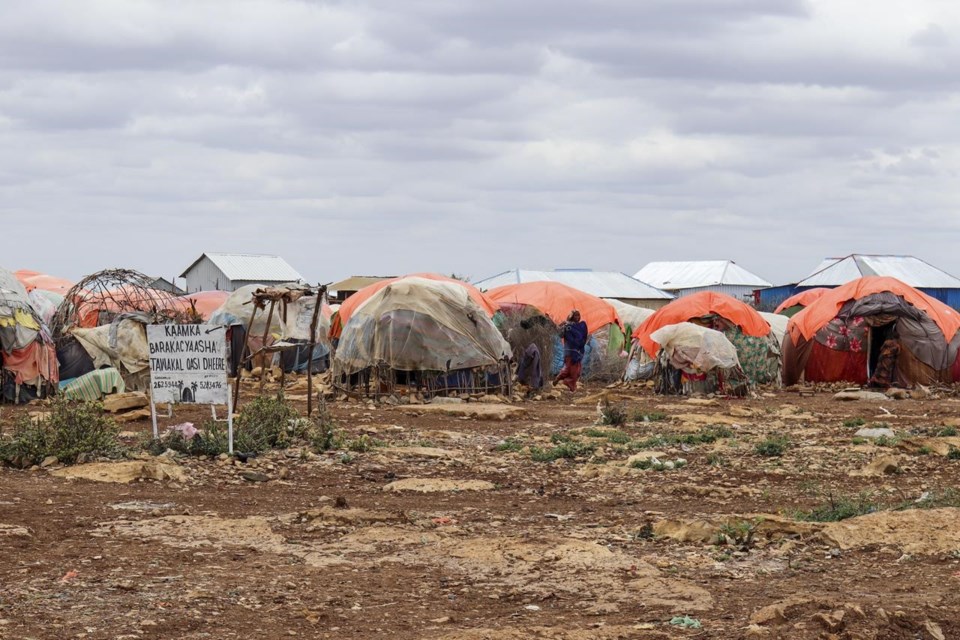NAIROBI, Kenya (AP) — The United Nations says close to 1 million drought-affected people in Somalia are in areas under the control or influence of the al-Shabab extremist group, and it appealed to the fighters to allow humanitarian access as famine threatens the country.
The U.N. secretary-general's special representative in Somalia, James Swan, told journalists Wednesday that the 900,000 people in those areas represent a “relatively small” share of the more than 7 million in need as the Horn of Africa country faces its worst drought in several decades. Thousands of people have died, including many children.
“It is obviously regrettable” that access remains difficult because of al-Shabab, Swan said, adding that talks continue with Somali organizations and private sector entities that might be able to reach places controlled or under the influence of the extremist group.
Al-Shabab’s hostility to aid efforts during a famine in Somalia a decade ago was a factor in the deaths of a quarter-million people.
The U.N. weeks ago warned that without substantially more international assistance, a rare formal famine declaration could be made for parts of Somalia by the end of the year.
Swan said the next announcement from an ongoing assessment of drought data should be made in the next three weeks.
Somalia, like other countries with long-running humanitarian crises, saw support from many donors drop this year as the focus swung to Russia's invasion of Ukraine.
Swan noted a “substantial increase in delivery of assistance” in recent months, but the U.N. says more needs to be done.
Cara Anna, The Associated Press



